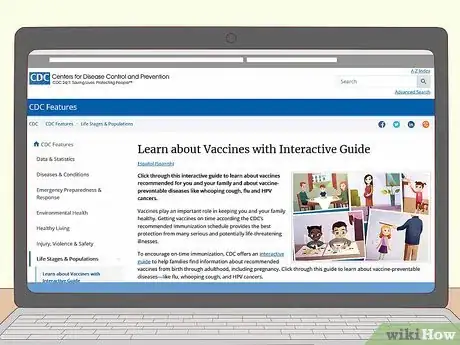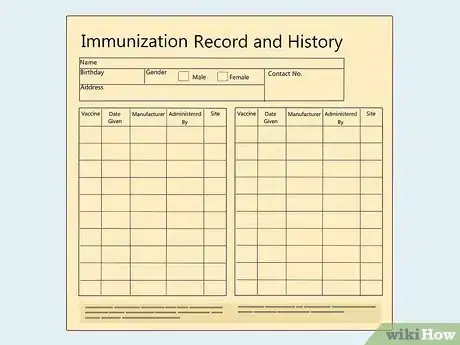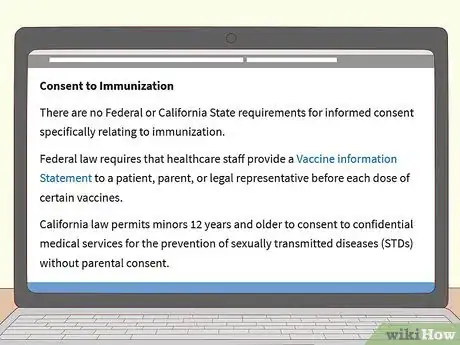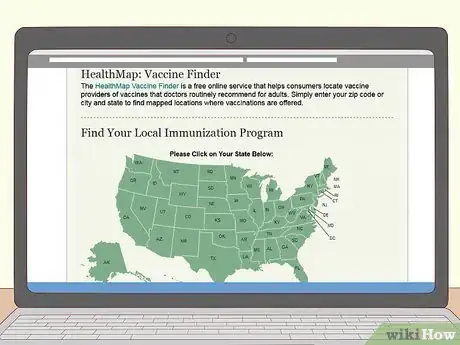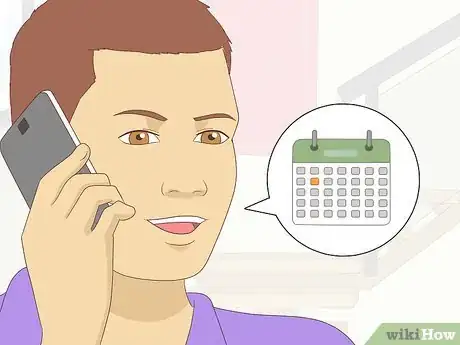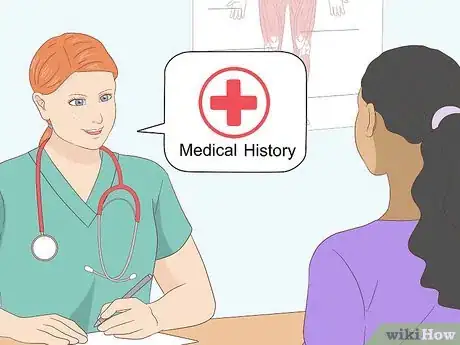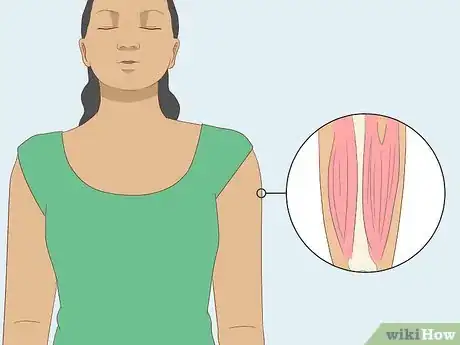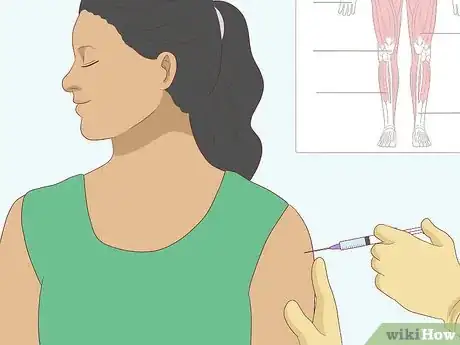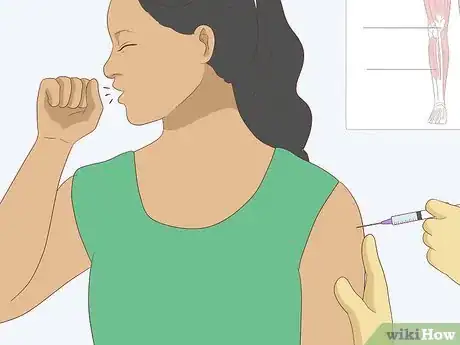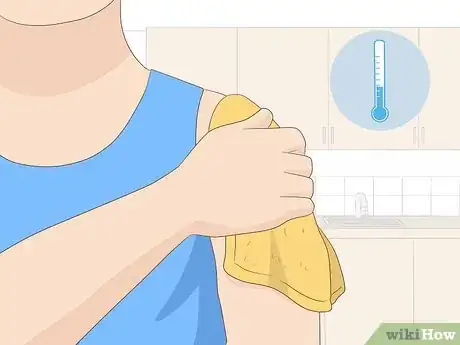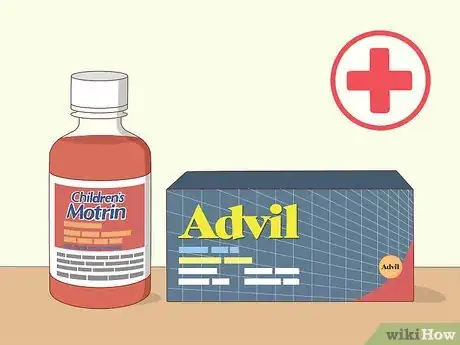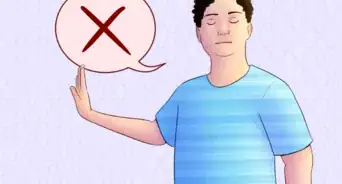This article was co-authored by Erik Kramer, DO, MPH. Dr. Erik Kramer is a Board-Certified Primary Care Physician at the University of Colorado. With over 15 years of experience, his clinical interests include obesity and weight management, diabetes care, and preventive care, as well as embracing a holistic approach to primary care. He received his Doctorate in Osteopathic Medicine (D.O.) from the Touro University Nevada College of Osteopathic Medicine and completed his residency at Central Maine Medical Center. Dr. Kramer is a Diplomate of the American Board of Obesity Medicine.
There are 12 references cited in this article, which can be found at the bottom of the page.
This article has been viewed 228,833 times.
Vaccines are one of the best ways to protect yourself from preventable diseases. All kinds of diseases, ranging from the flu to polio, are kept under control every year through vaccinations.[1] If you're planning on getting vaccinated, then you're making a great choice for your health. It's completely normal if you're confused about the process, so don't worry! Getting all your vaccinations is an easy process and when you're done, you'll be able to resist dangerous diseases for years to come.
Steps
Basic Information
-
1Use good sources to learn about vaccines and their benefits. If you’re considering getting vaccinated, then you probably have tons of questions about the process, types of vaccines, and safety. Luckily, there are plenty of great resources you can use to learn everything you need to know. Look for information from reputable sources like the Centers for Disease Control or World Health Organization. These sources should help answer any questions you might have.[2]
- The CDC offers an vaccine guide here: https://www.cdc.gov/vaccines/growing/images/global/CDC-Growing-Up-with-Vaccines.pdf
- The CDC recommends that all adults get a flu shot each year, as well as vaccines for HPV, whooping cough, diphtheria, and tetanus.[3] Children should get a few other vaccines, like chickenpox, polio, hepatitis, meningitis, and mumps.[4]
- There are also some people who need more vaccines. For example, someone who works or travels overseas may need a malaria vaccine. You may also need additional vaccines if you have certain health conditions—for instance, you’ll need extra meningitis, pneumonia, and flu vaccines if you’ve had a ruptured spleen or surgery to remove your spleen.
- You can also install the Shots Immunizations app from the American Academy of Family Physicians and the Society of Teachers of Family Medicine. This app provides information about vaccines as well as recommended vaccine schedules based on things like your age and overall health.[5]
-
2Gather your previous vaccination history. If you’re planning on getting vaccines, it’s important to get your medical history and make a list of any previous vaccinations you’ve had. This might be easy if you’ve never been vaccinated before, but it might be a little tricky if you don’t have your records. The best thing to do is contact your doctor and see if they have your records. This way, you can get the right vaccinations.[6]
- If you can’t locate your vaccine records, the CDC recommends some strategies like contacting your old schools, reaching out to past doctors, or asking previous employers to see if they have your records. If you don’t have any luck there, the CDC has some other recommendations here: https://www.cdc.gov/vaccines/adults/vaccination-records.html.
- In a pinch, you can actually get some vaccines twice. This is a good option if you can’t find your records at all.[7]
Advertisement -
3Check the age of consent laws for vaccinations in your state. You might think you have to be 18 before you can get vaccinations without your guardian, but this isn’t true everywhere. In some states, the age of consent is as low as 14. This is different in every state, so the best thing to do is search the vaccine age of consent laws for the state you live in. It is also possible in some cases for older minors to be granted legal emancipation by a court to make medical decisions.[8]
- If you’re a minor, the doctor will probably take some extra time to explain the vaccination process to you so you understand it. Take that time to ask anything you might be curious about.
-
4Find a doctor’s office or health center where you can get vaccinated. The most common place to get a vaccine is at your doctor’s office, but there are also state vaccine programs that might provide vaccines as well. Many pharmacies also carry different vaccines. It’s best to call your regular doctor if you have one. If not, then see if there are vaccine centers near you.[9]
- For a list of approved vaccine locations in your state, visit https://vaccineinformation.org/vaccine-finder/.
- If you just want a flu shot, then any pharmacy can do this. Find a nearby CVS, Walgreens, or independent pharmacy to get your vaccine. Some of these pharmacies might have other vaccines too.
- Your local public health department may also offer vaccines, sometimes for free or at very low cost.[10]
-
5Call the location to set up your appointment. Once you find a place to get your vaccines, you just need to set up an appointment. Some offices and clinics have online appointment systems, and others you’ll have to call to set up your appointment.[11]
- If you’re getting a flu shot at a pharmacy, you usually don’t need an appointment.
- Private offices will ask for your insurance information when you make an appointment, so have that handy.
Your Appointment
-
1Talk to the doctor about your medical history. When you arrive for your appointment, the doctor will talk to you for a few minutes before giving you your shots. This is mostly to get your medical history and answer any questions you might have about the process. Once this is all done, they’ll go on with giving you your vaccines.[12]
- If you have particular allergies or illnesses, your doctor might say it’s not right for you to get a particular vaccine.
- If you still have questions, feel free to ask. Your doctor will be happy to answer.
-
2Relax your muscles when you get the shot. It’s totally normal to be nervous before your shot, but do your best to keep your muscles loose and relaxed. If your muscles are tight, the shot will actually hurt more.[13]
- Focus on breathing deeply if you’re having trouble relaxing. This prevents your muscles from tensing up.
- In most cases, the shot will be in your upper arm, so at the very least try to keep those muscles loose.
-
3Don’t look at the needle if you’re nervous. You might be tempted to look at the needle, and you can if you want to. However, if you’re worried about the shot hurting, it’s best to look away. Then you’ll be less likely to tense up when it goes in.[14]
- A common trick is picking something in the room to focus intently on so you don’t look at the shot. Try staring at the clock instead, for example.[15]
-
4Cough when the doctor gives you the shot to help with the pain. This is another common trick to distract yourself from the pain. A quick cough before and during the shot can cut down on the amount of pain you feel. If you’re worried about the shot hurting, try this out.[16]
Recovering Afterward
-
1Prepare for some minor side effects from the vaccine. Vaccines are safe, but can still cause some very minor side effects. It’s normal for the vaccine spot to be red, swollen, and sore for a few days. You might also feel tired, achy, and feverish. This is all normal and it just means your body is getting used to the vaccine.[17]
- The specific side effects will vary depending on what vaccines you received.
- If at any point you feel uncomfortable about the side effects, call your doctor.
-
2Put a cold washcloth on the vaccine site if it’s sore. A bit of pain at the vaccine site is the most common side effect from a shot. If the vaccine site hurts, a cold washcloth can help soothe the pain until the spot heals up.[18]
-
3Drink plenty of fluids. Since it’s normal to feel a little feverish after getting a vaccine, make sure you keep yourself hydrated. Drink plenty of water to keep your strength up while you recover.[19]
- Cold water will probably help you feel better if you have a sore throat or minor fever.
- You might also have slight chills for a few days, so warm liquids like tea might be a better choice for you.
-
4Ask your doctor before taking a pain reliever. Since you might feel some aches and discomfort for a few days after your vaccine, you might be tempted to take a pain reliever like Advil or Motrin. This might help, but ask your doctor first. Medications could interfere with some vaccines, so only take pain relievers if your doctor tells you it’s okay.[20]
- Only take non-aspirin pain relievers after a vaccine. Aspirin can interact with some medications.
References
- ↑ https://www.cdc.gov/vaccines/schedules/
- ↑ https://www.cdc.gov/vaccines/schedules/
- ↑ https://www.cdc.gov/vaccines/adults/rec-vac/index.html
- ↑ https://kidshealth.org/en/teens/immunizations.html
- ↑ https://www.aafp.org/family-physician/patient-care/prevention-wellness/immunizations-vaccines/shots-app.html
- ↑ https://www.vaccines.gov/get-vaccinated/for_adults
- ↑ https://www.cdc.gov/vaccines/adults/vaccination-records.html
- ↑ https://www.nejm.org/doi/full/10.1056/NEJMp1905814
- ↑ https://www.vaccines.gov/get-vaccinated/where
- ↑ https://www.hhs.gov/immunization/get-vaccinated/where/index.html
- ↑ https://www.vaccines.gov/get-vaccinated/where
- ↑ https://www.vaccines.gov/get-vaccinated/for_adults
- ↑ https://kidshealth.org/en/teens/tips-shots.html
- ↑ https://www.hhs.gov/immunization/get-vaccinated/for-adults/index.html
- ↑ https://kidshealth.org/en/teens/tips-shots.html
- ↑ https://kidshealth.org/en/teens/tips-shots.html
- ↑ https://www.hhs.gov/immunization/get-vaccinated/for-adults/index.html
- ↑ https://www.cdc.gov/vaccines/parents/visit/before-during-after-shots.html
- ↑ https://www.hhs.gov/immunization/get-vaccinated/for-adults/index.html
- ↑ https://www.hhs.gov/immunization/get-vaccinated/for-adults/index.html
